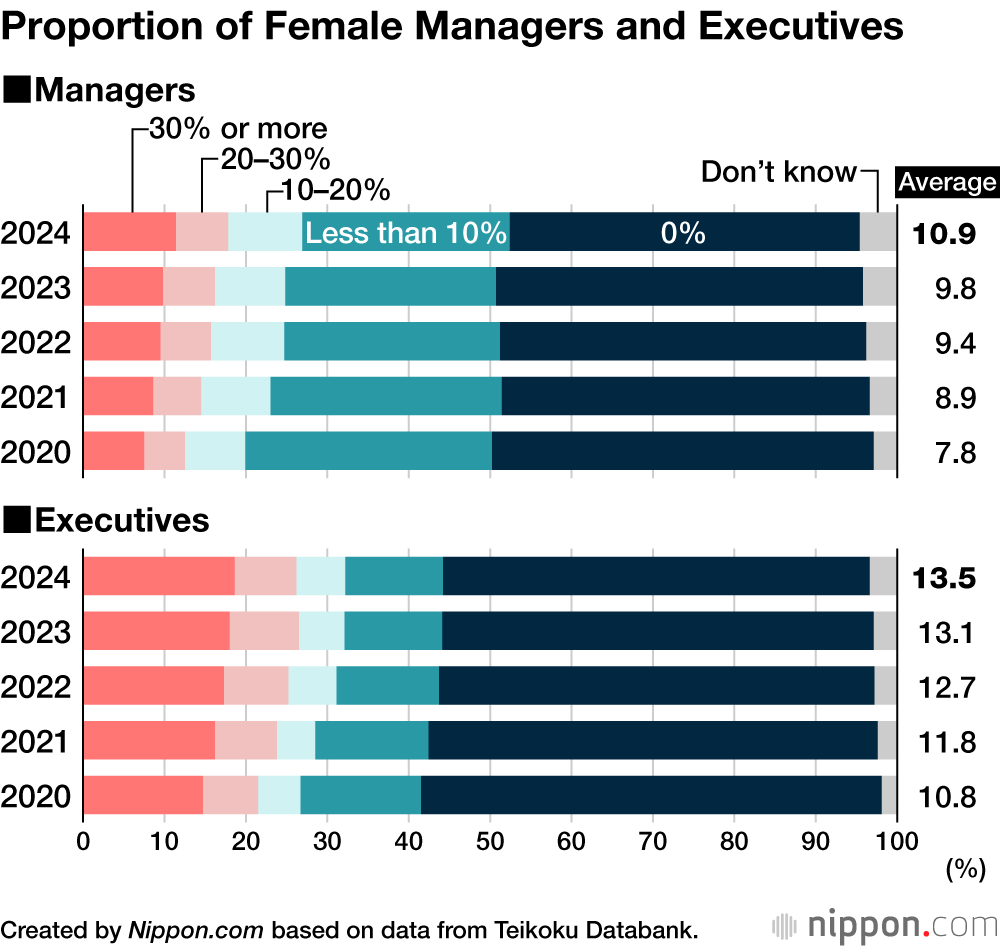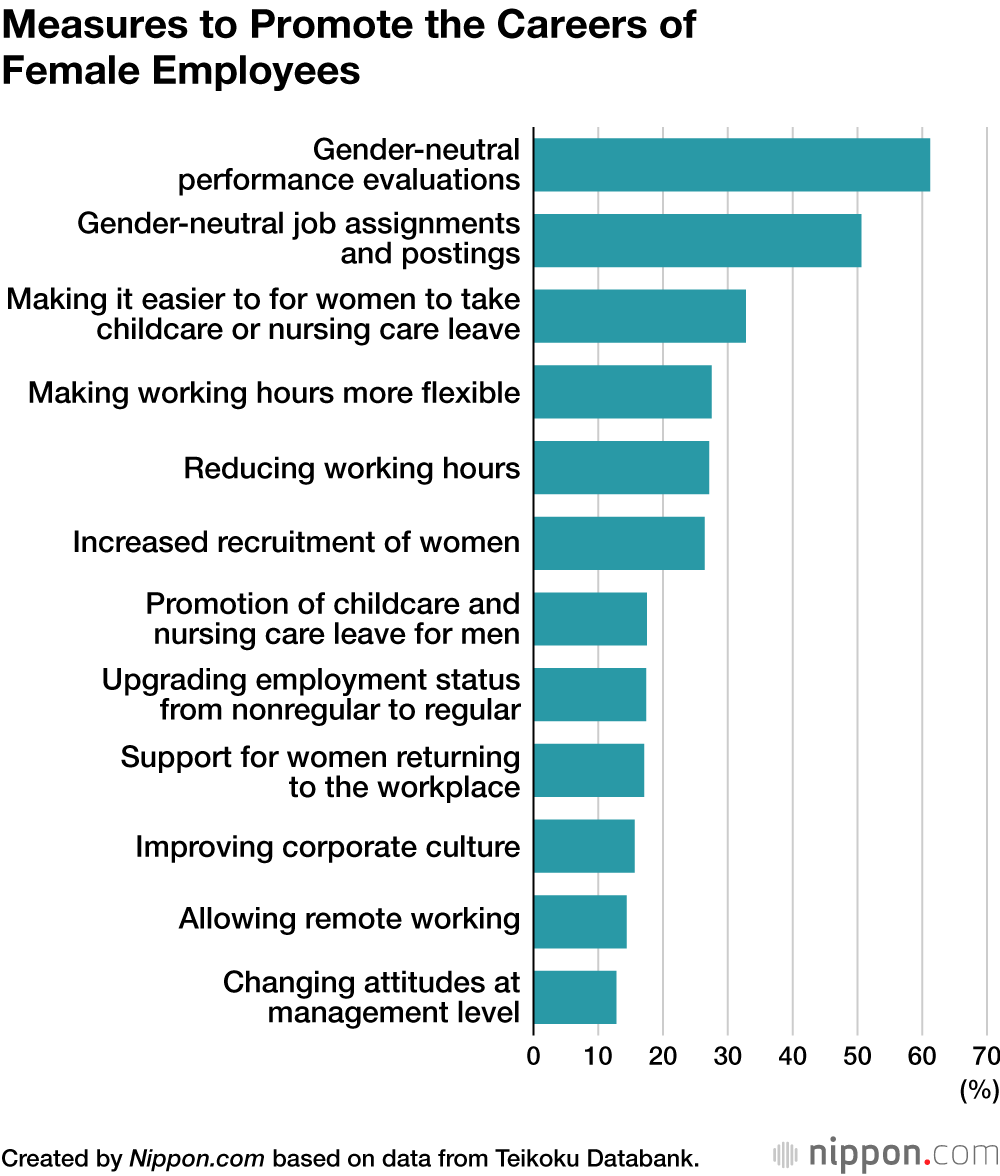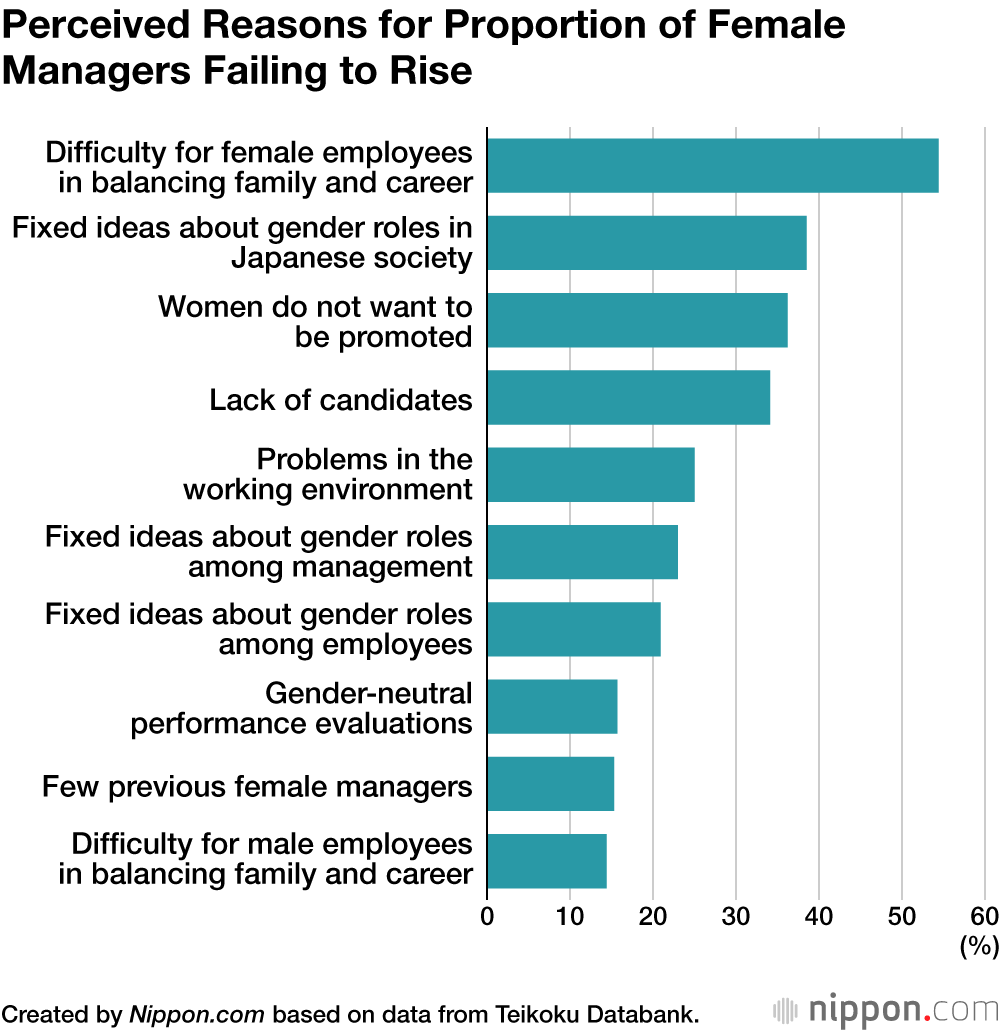
Female Managers in Japan Remain Few and Far Between
Work Society Gender and Sex- English
- 日本語
- 简体字
- 繁體字
- Français
- Español
- العربية
- Русский
A survey of 27,191 companies across Japan conducted in July 2024 by Teikoku Databank found that the proportion of female managers rose 1.1 percentage points year on year, to 10.9%, marking the first time since the survey was launched in 2013 for the figure to exceed 10%. However, companies where “all managers are men” remain the largest group, at 43.0%, and the government goal of having at least 30% of leadership positions held by women as soon as possible in the 2020s is still a long way off. By global standards, Japan lags behind, ranking 118th out of 146 countries in the World Economic Forum’s 2024 Gender Gap Report.
By company size, the percentage of female managers was highest among small companies (14.4%), followed by small to medium-sized companies (11.5%), and large companies (7.6%). By industry, the retail sector, with a relatively large number of female employees, came out the highest at 19.4%, 8.5 points above the overall average. Other top industries included real estate at 16.7%, the service sector at 15.3%, and agriculture, forestry, and fisheries at 12.7%. In contrast, fields with fewer female employees like manufacturing, transportation or warehousing, and construction had a low number of female managers.
The top measure employed to promote the advancement of female employees was “gender-neutral performance evaluations,” mentioned by 61.2% of the companies surveyed, followed by “gender-neutral job assignments and postings” at 50.6% and “making it easier for women to take childcare and nursing care leave” at 32.8%. Only around one in four companies are implementing policies for “making working hours more flexible” or “reducing working hours,” at 27.5% and 27.1%, respectively. Meanwhile, 17.5% of the companies are working on “promotion of childcare and nursing care leave for men,” which the government has also been backing, for a 1.8-point increase over the previous year.
(Translated from Japanese. Banner photo © Pixta.)


